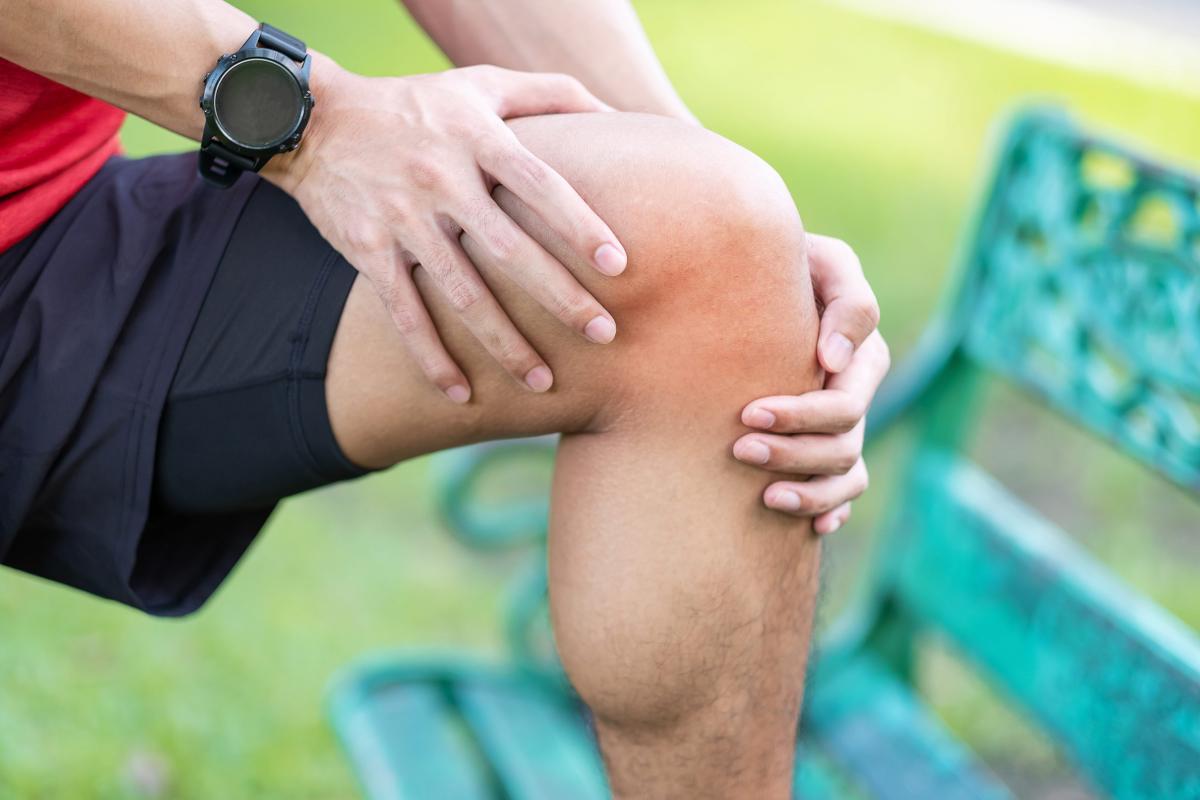How Can I Treat My Patellofemoral Pain Syndrome?

May 2022
Patellofemoral pain syndrome (PFPS) is a medical term for what’s commonly known as runner’s knee or jumper’s knee. PFPS causes pain around your kneecap and can affect either one or both knees. The condition can develop in people of all ages but tends to be most prevalent among professional athletes as well as children and adults participating in sports involving running, squatting or jumping.
PFPS is generally responsive to non-invasive treatments like rest, pain medication or cold compression therapy. If the pain becomes severe or chronic, other treatment options, like pain injections or physical therapy may be explored.
Symptoms of Patellofemoral Pain Syndrome
Frequently, symptoms of PFPS start off as mild and become more severe over time. The most telling signs of PFPS include:
- Pain when going up or down stairs
- Pain from bending your knees for extended periods of time
- Pain when squatting
- Knee swelling
- Stiffness
Causes of Patellofemoral Pain Syndrome
Weak muscles can contribute to the development of PFPS. Specifically, weakness in hip abductors and muscles around your kneecaps can lead to your knees giving out during physical activity. This lack of proper knee alignment may lead to pain and injury.
Another potential cause of PFPS is overusing the knee joints. This is common among people who engage in strenuous physical activity, such as athletes or physical laborers. The stress from repetitive movements or squatting for lengthy periods of time may lead to pain and irritation in the knee joints.
PFPS is also associated with lesser-known causes, including knee surgery and a dislocated or fractured kneecap.
How Is Patellofemoral Pain Syndrome Diagnosed?
If your knee pain becomes severe or chronic and is causing you to lose mobility, it may be time to seek medical help. Your doctor will likely perform a comprehensive examination to either rule out or diagnose PFPS. They’ll ask you detailed questions about your symptoms and lifestyle.
Your doctor may also perform a thorough physical exam and will likely order some imaging tests, like X-rays or an MRI, to get a closer look at your kneecaps and the surrounding soft tissue.
Patellofemoral Pain Syndrome Treatment
PFPS usually responds to simple at-home treatments. However, if your symptoms are severe, your doctor may prescribe more aggressive treatments.
Most people experience significant improvement by implementing a combination of the following measures:
- Rest: Take a break from whatever physical activity caused you PFPS and allow your body to heal. You’ll likely be able to slowly incorporate physical activity once your knee feels better, but don’t try to rush your recovery, especially if your pain persists.
- Medication: If you’re looking for temporary relief from pain, you can take over-the-counter pain medications, like Tylenol, Ibuprofen or Aleve. Never take more than the recommended dosage as this may lead to dangerous side effects, including liver damage and stomach ulcers.
- Cold compression therapy: Is a combination of rest, cold compression and elevation to reduce the pain and swelling from PFPS.
- Physical therapy: Your doctor may recommend physical therapy under the supervision of a certified physical therapist. The therapist will prescribe specific exercises to help reduce your PFPS symptoms, restore knee strength and improve your range of motion.
- Knee braces: Bracing your knee can help you manage pain and discomfort and prevent additional injuries.
- Corticosteroid injections
- Stem Cell & Regenerative injections (such as PRP): There’s a variety of pain injections that help alleviate pain from PFPS while giving your body’s natural healing ability a helping hand. For instance, Platelet Rich Plasma injections (PRP) use a concentration of your own plasma cells to promote healing of an injured area.
- Surgery: If all other non-invasive options have been exhausted and the pain in your knee persists, your doctor may recommend surgery, which usually involves realigning the kneecap.
Are You Looking for Non-Invasive Patellofemoral Pain Syndrome Treatments in Georgia?
Our experienced and forward-thinking orthopaedic specialists are here to help you recover from PFPS as well as a variety of other orthopaedic conditions, including back and neck injuries, repetitive motion injuries and muscle sprains.
We rely on minimally invasive pain management and regenerative medicine therapies to promote the body’s natural healing processes, alleviate pain and reduce inflammation.
If you’d like to learn more about our state-of-the-art approach to healing, call 770-421-1420 or schedule an appointment at our Marietta or Carrollton location.






